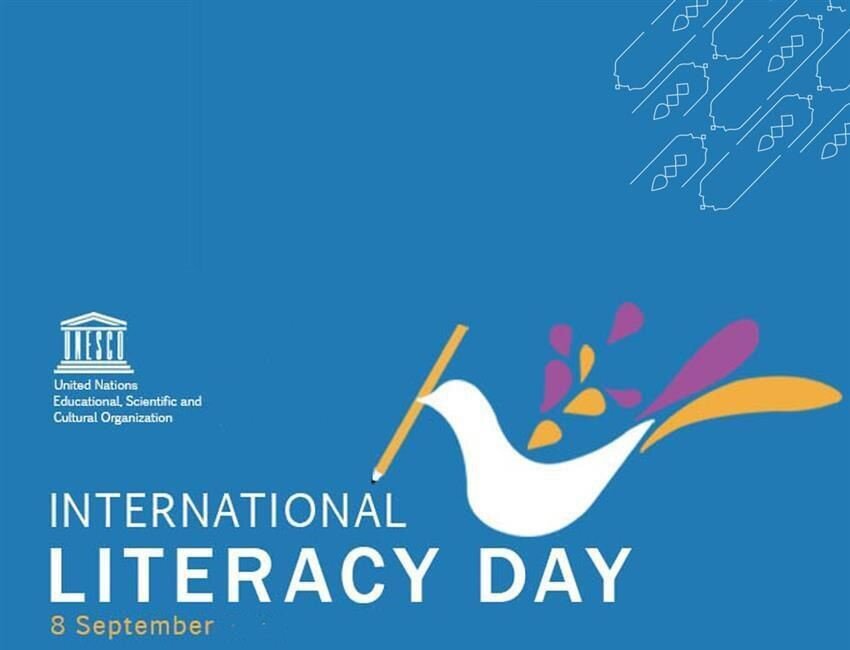Literacy a fundamental right for all

TEHRAN –Observed annually on September 8, the International Literacy Day highlights literacy as a fundamental human right for all.
It reminds everyone of the significance of literacy in creating a more literate, just, peaceful, and sustainable society.
Literacy is a foundation for people to acquire broader knowledge, skills, values, attitudes, and behaviors to foster a culture of lasting peace based on respect for equality and non-discrimination, the rule of law, solidarity, justice, diversity, and tolerance, and build harmonious relations with oneself, other people and the planet.
In 2022, however, at least one out of seven adults aged 15 and above (754 million) lacked basic literacy skills. Additionally, millions of children are struggling to acquire minimum levels of proficiency in reading, writing, and numeracy, while some 250 million children of 6-18 years old are out of school.
Eradicating illiteracy
The Literacy Movement Organization was established in the country a year after the 1979 Islamic Revolution by the order of Imam Khomeini with the aim of eradicating illiteracy.
At that time more than half of Iran’s population, over the age of six, was illiterate. A great number of children were deprived of attending school. With the population growth back then, the number of illiterate people increased.
Eliminating illiteracy in the country, promoting cultural independence, and educational justice, were among the most important goals in the formation of the literacy movement.
Now, Iran is on the verge of removing illiteracy.
Over the past years, the Literacy Movement Organization has implemented projects that have been effective in blocking the causes of illiteracy and have been able to promote literacy in different age groups and strata, including foreigners, prisoners, soldiers, parents of illiterate students, employees, workers and women who are the heads of the household.
As the new definition of “literacy” is no longer confined to reading and writing, the first mission of the literacy movement is not to overcome basic illiteracy.
‘Literate village and student movement’ are among the new projects that have been implemented by the Literacy Organization Movement.
The former is a national program for enhancing the literacy rate in rural communities planned to be implemented in ten pilot provinces of the country.
The program kicked off on August 22 as announced by the Literacy Movement Organization.
The latter refers to the Literacy Movement Organization's plans to benefit from the capacity of students to improve the country’s literacy rate in the near future.
The project will engage students and leverage their capabilities and knowledge in tackling illiteracy.
High school students who are interested in teaching can volunteer to be chosen as teachers.
They will primarily identify illiterate people in their families and relatives, and then register them in a system designed by the Literacy Movement Organization. Once the recorded information is confirmed, they can start teaching.
The main objectives of the plan are to lower the illiteracy rate in the country, make students more engaged with society by enhancing their interactions with others, and develop their communication skills. The students will also gain job experience which will serve as a valuable addition to their résumé.
2024 theme
This year, the International Literacy Day will be celebrated globally under the theme of “Promoting multilingual education: Literacy for mutual understanding and peace”.
There is a pressing need to harness the transformative potential of literacy for promoting mutual understanding, social cohesion, and peace.
In today’s world, in which multilingualism is a common practice for many, empowering people by adopting a first language-based, multilingual approach to literacy development and education is particularly effective for its cognitive, pedagogical, and socio-economic benefits.
Such an approach can help promote mutual understanding and respect while solidifying communal identities and collective histories.
Leave a Comment